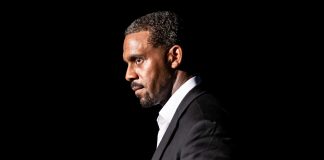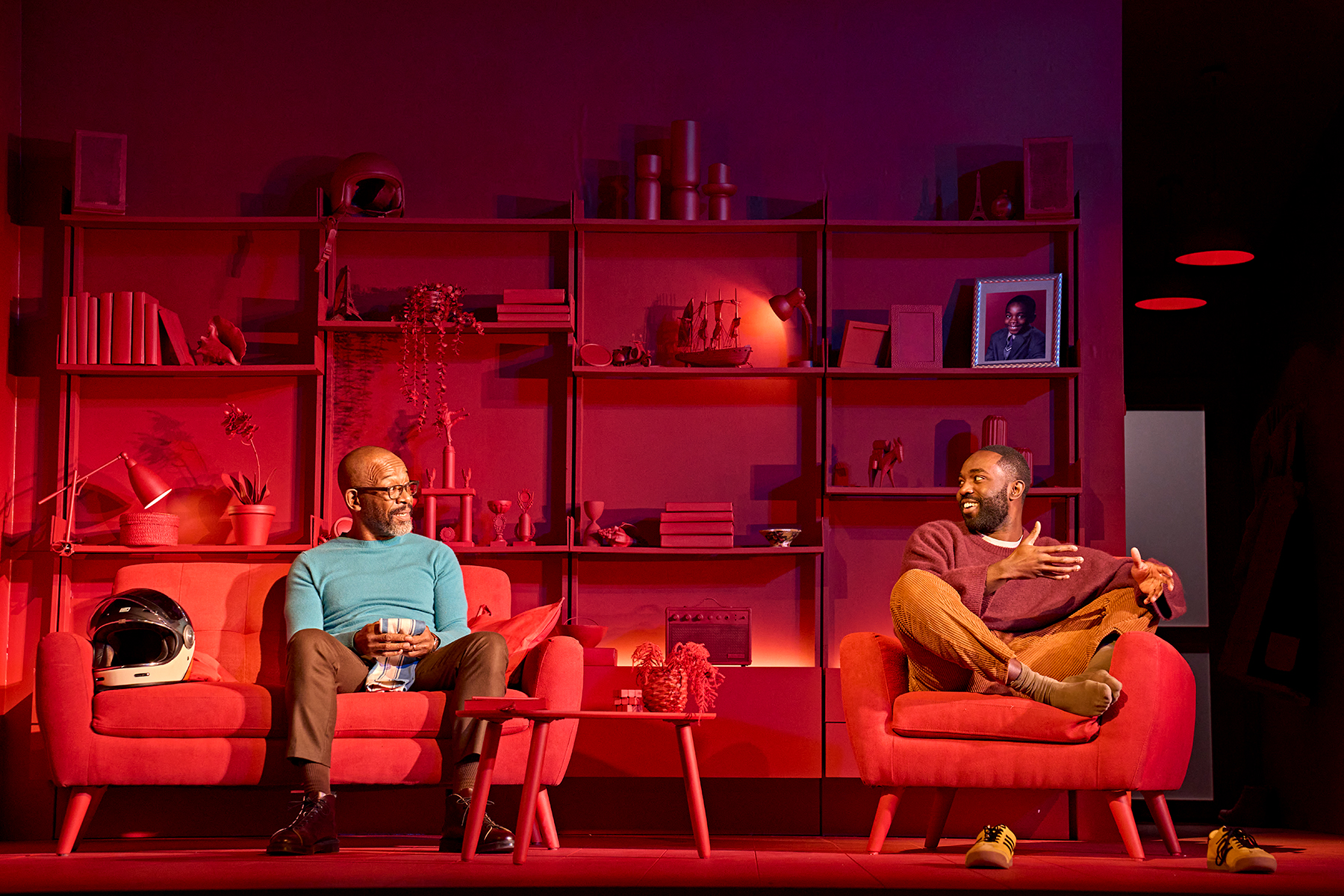
The energy in the Old Vic theatre for press night of A Number was electric. As the crowd piled into their seats in the ornate setting of such a legendary space, you couldn’t help but be swept up by the buzz in the air; I knew as well as everyone else did that we were about to witness something special. Spoiler alert: this play is phenomenal and should be viewed by whoever can lay their hands on a ticket.
Twenty years since its inception, Lyndsey Turner directs Caryl Churchill’s play of familial relationships, genetics, and self-discovery. A Number explores the relationships between a father and his sons, upon discovering his child was unethically cloned multiple times in a research experiment. In Lennie James’ own words, this is a play about “how a father fathers a son and how sons father a father.”
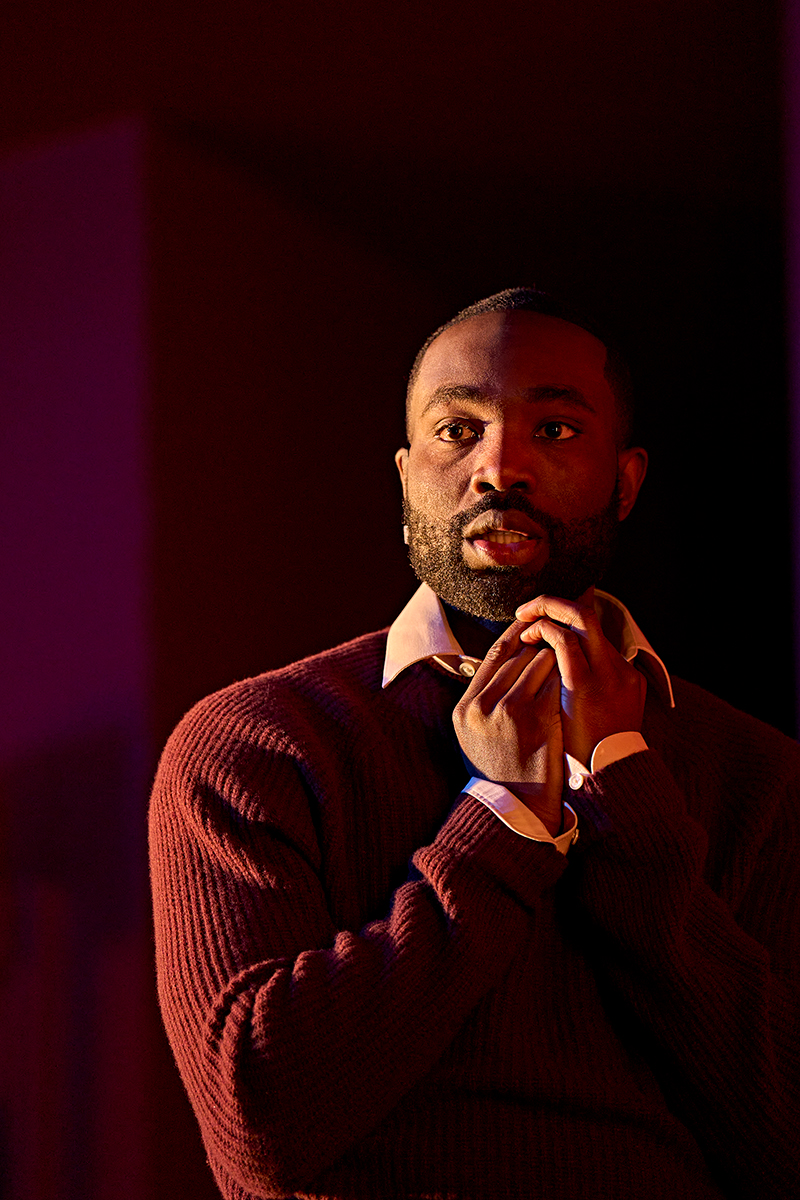
If there was ever a way to make your audience feel drawn into a story before it’s even started, Es Devlin’s set along with sound by Donato Wharton hit the nail on the head. Churchill’s original text gives no specifications for set, with the set in the original 2002 production being described by one critic as ‘bare and blank’. I love how Devlin interprets this; a monochromatic version of domesticity stands strong framed by a single strip of white light, much like looking into a picture perfect rendition of what domestic life should be like, however feeling almost phoney with everything residing within painted pillar box red.
It will shake you, amuse you and intrigue you all at once and this tale along with the actors’ performances are ones that will surely stay with you long after the curtain is called.
The only thing not shrouded in scarlet is a framed photo of a young boy that smiles innocently back at us, reminding us of what lays at the core of this story. This introduction bringing us into the strange and complex world this story inhabits is so arresting; mixed with the ominous string music that filled the room, we are immediately made to feel its importance. Paapa Essiedu gives incredible performances as the three sons we meet, each one being more intricately curated and unique than the previous. Not only the quick costume changes that showed their differences, but the specific characteristics Essiedu nailed showed us that whilst these men may share much in DNA, they couldn’t be more different as people.
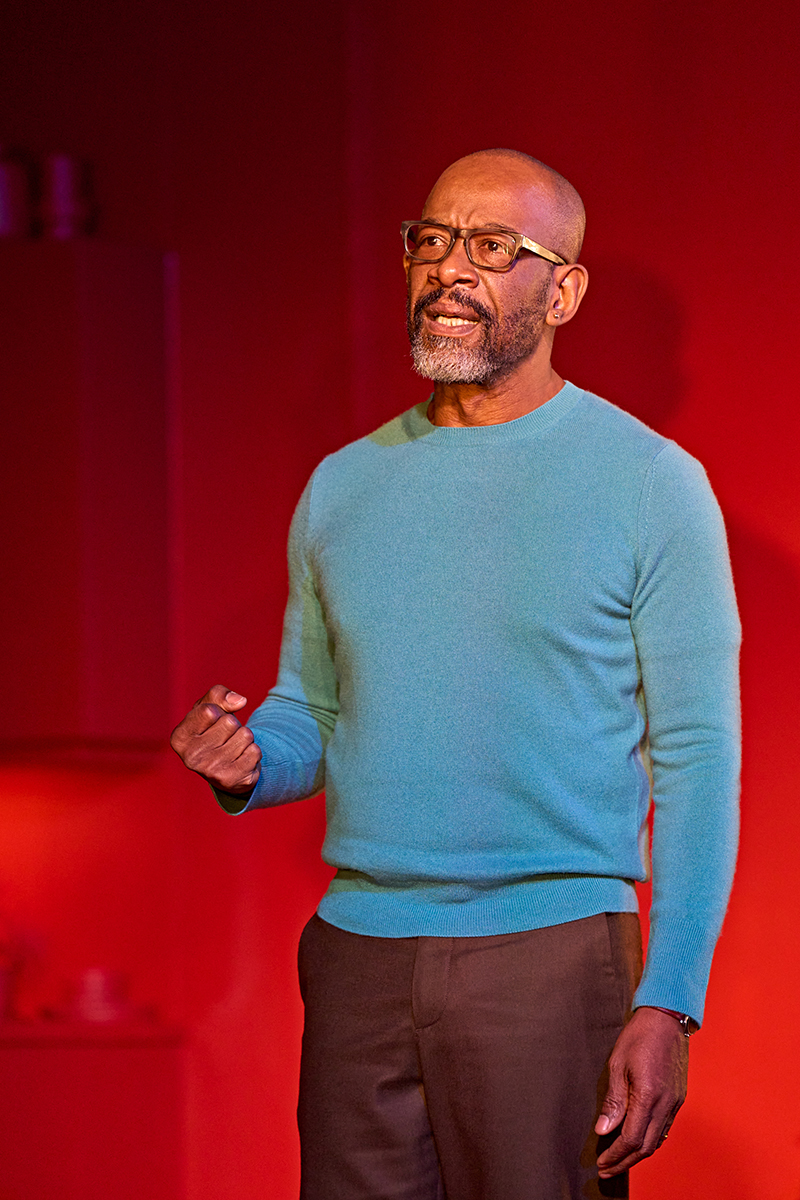
Bernard 1 and Bernard 2 handle their discovery of each other in vastly different ways; Bernard 1 finding lightness as his father suggests suing for a hefty sum as well as when he meets his likeness. It was impossible not to be drawn into the patter of their conversation, the dialogue playing like a game of ping pong, quick quips back and forth as the father and son attempt to decipher the situation for themselves, not quite knowing how to respond to one another but understanding each other implicitly.
Moving from one scene to the next with flashes of bright white light, Essiedu brings Bernard 2 to life, exhibiting his rage in a heart breaking display. Lennie James beautifully plays father, Salter, diplomatically attempting to soothe his sons’ confusion and their understandable upset and fear that there is someone out there threatening to take their place. James does a stellar job of bringing us into the mind of this father, clearly contending with his own disorientation of the situation he has been presented with, giving us snippets of the chaos that has led us to these moments.
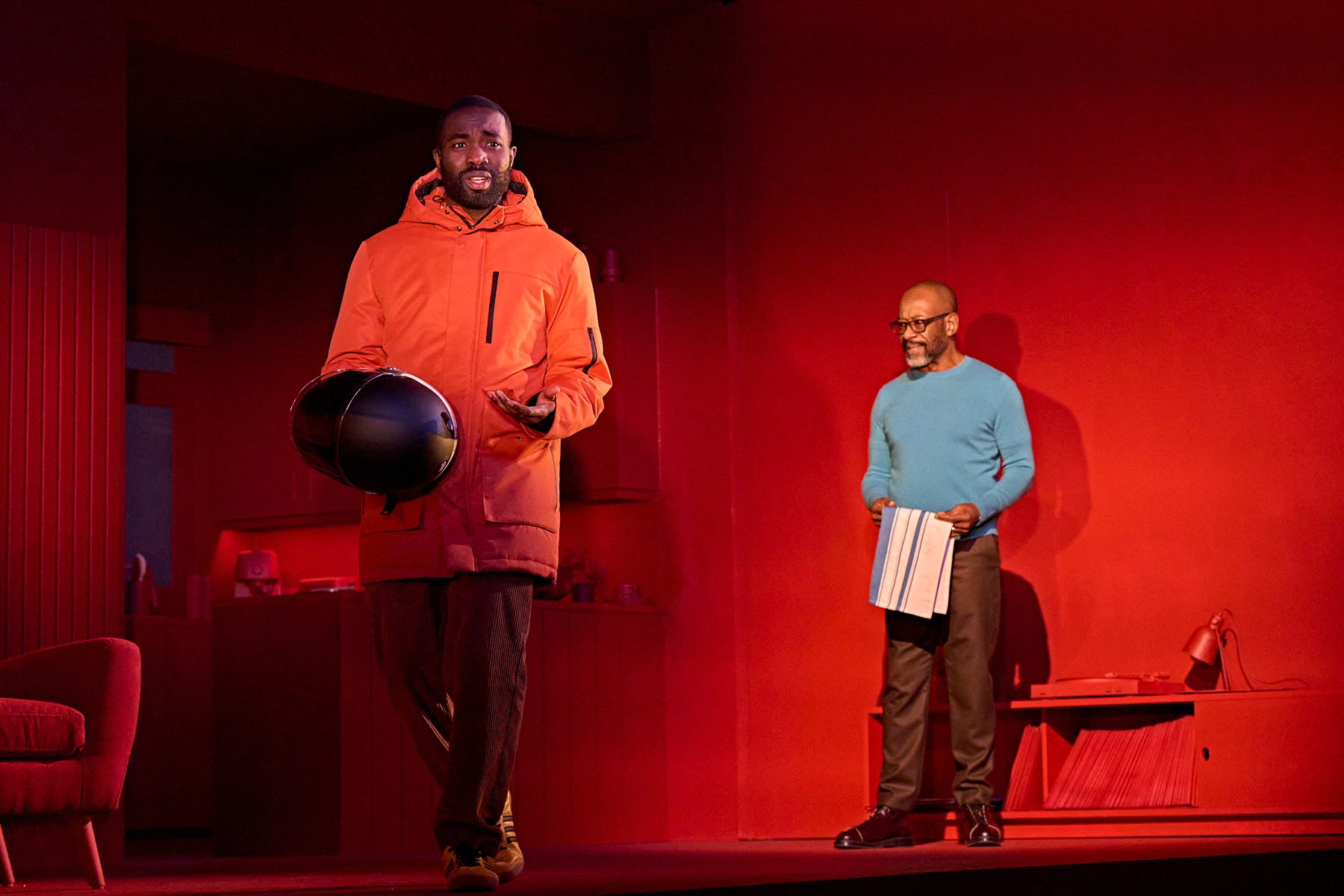
If there was ever a way to make your audience feel drawn into a story before it’s even started, Es Devlin’s set along with sound by Donato Wharton hit the nail on the head.
The tragic deaths of his child and wife, alcohol dependency and painful decisions all playing out in his actions, giving us as an audience enough to sympathise but still feeling as though something is being held back. James and Essiedu play perfectly off one another, the work they have done individually and together in the rehearsal room shines through and gives this story the gravitas it deserves.
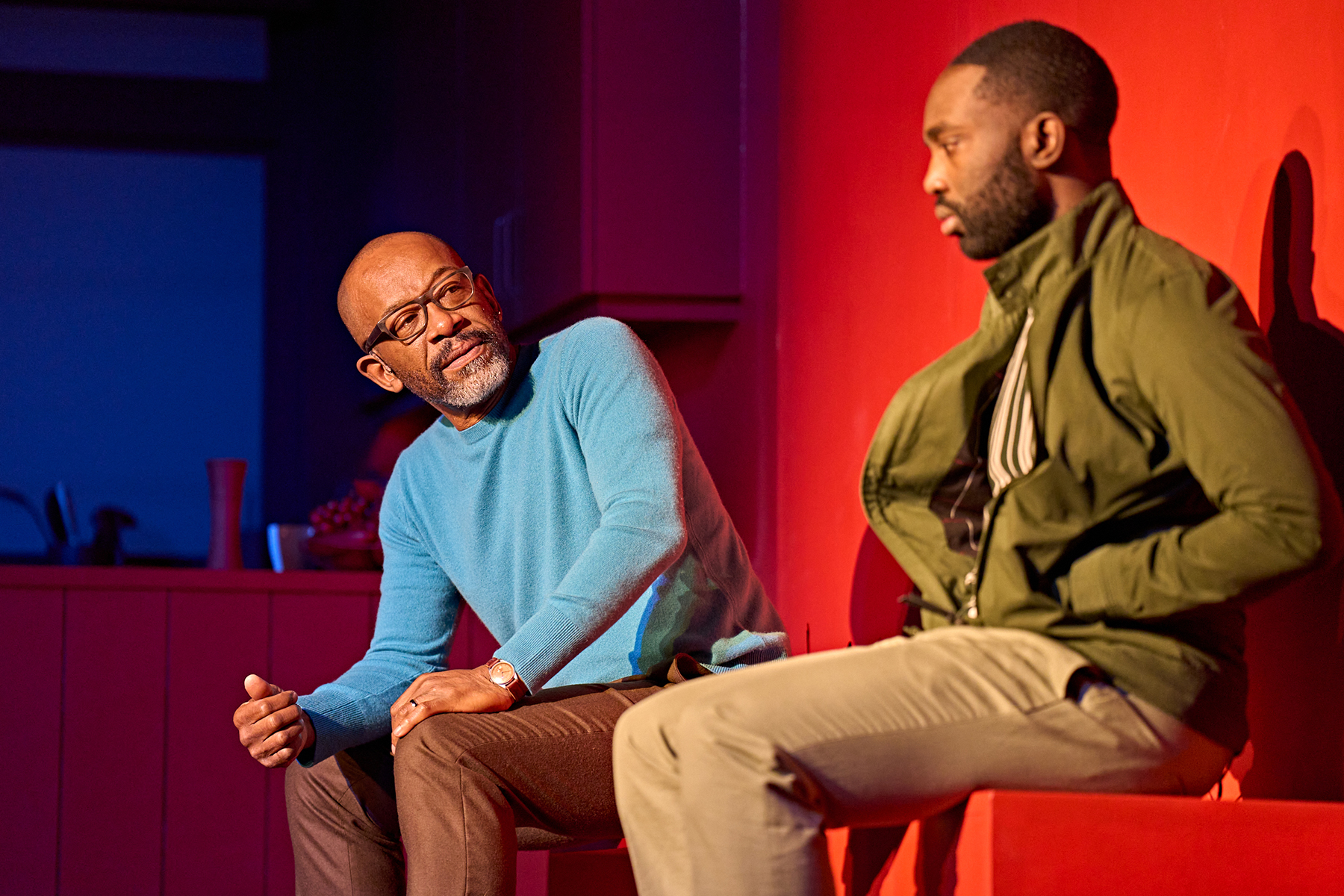
A Number leaves us with questions rather than answers and this is far from a critique. It begs us to consider what makes us unique, what it means to be loved and known by the people who made you, and how we may feel chosen or discarded throughout our lives. It will shake you, amuse you and intrigue you all at once and this tale along with the actors’ performances are ones that will surely stay with you long after the curtain is called.





























